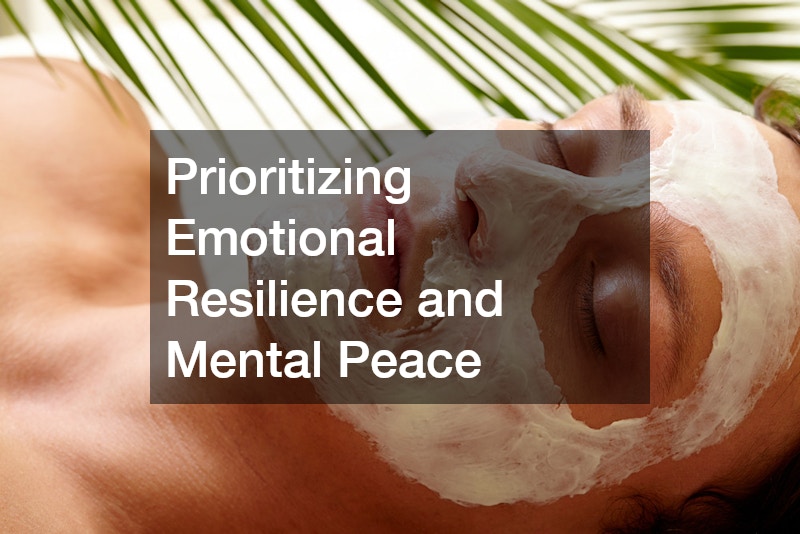Self-care is far more than just bubble baths and an occasional day off; it is a comprehensive approach to maintaining physical, mental, emotional, and even financial well-being. In today’s fast-paced and digitally connected world, taking care of oneself has never been more important. Practicing self-care in every area of life helps prevent burnout, improves relationships, and boosts productivity. It means paying attention to our needs and making a conscious effort to nurture all aspects of our lives, including the often-overlooked ones. Whether it’s your career, physical health, emotional health, or personal environment, self-care requires intentionality and consistency. The good news is that you don’t need to overhaul your entire life to practice effective self-care. By integrating small, manageable changes into your daily routine, you can make a significant impact. In this blog, we’ll explore actionable ways to incorporate self-care into all areas of life—from the physical and emotional to the professional and social. You’ll learn practical strategies, the importance of balance, and the key resources available to support your self-care journey. Let’s begin the process of cultivating a lifestyle rooted in wellness.
Supporting Your Body Through Daily Habits
Caring for your physical health is often the first thing people think of when discussing self-care. This includes everything from maintaining a balanced diet to exercising regularly and getting sufficient sleep. The role of fitness in wellness is crucial, as physical activity boosts energy, improves mood, and reduces the risk of chronic diseases. You don’t need to be a gym rat to see benefits; even 30 minutes of walking a day can enhance cardiovascular health. Sleep hygiene is equally important. Creating a consistent sleep schedule and reducing screen time before bed can significantly improve sleep quality. Regular check-ups and preventative care also fall under this category. For instance, seeing optometrists annually can ensure your vision is functioning optimally and help detect early signs of other health issues. Hydration, proper posture, and limiting processed foods are small habits that contribute to long-term wellness. Physical self-care isn’t about achieving a specific body image but rather about cultivating sustainable habits that help you feel your best.
Prioritizing Emotional Resilience and Mental Peace

Your emotional health forms the foundation for resilience and happiness. Managing stress, setting boundaries, and processing emotions are vital components of mental wellness. One often-overlooked way to boost mental health is through journaling. Writing down your thoughts can help you understand your emotions and identify patterns in your mental state. Therapy or counseling is another invaluable tool, offering a safe space to discuss challenges and learn coping mechanisms. Mindfulness techniques such as deep breathing, guided imagery, or meditation can provide a reset during stressful moments. Social media detoxes and digital boundaries are also key to maintaining clarity and peace of mind. In wellness, emotional care is about creating a mental environment that fosters inner peace and stability. Regularly checking in with yourself, acknowledging your feelings, and seeking help when needed are powerful self-care strategies. Simple acts like expressing gratitude, practicing forgiveness, and spending time in nature can have profound emotional benefits.
Balancing Caregiving Responsibilities With Self-Nurture
As we age, our self-care needs evolve. If you’re caring for an elderly parent or loved one, incorporating self-care into this responsibility is crucial. Balancing caregiving with personal well-being often requires external support. This is where senior care services come into play. These services offer everything from assisted living to in-home help, allowing seniors to maintain dignity while receiving essential care. For caregivers, outsourcing certain tasks can reduce burnout and free up time for personal wellness activities. Emotional support groups for caregivers can also provide connection and understanding. It’s essential to prioritize your own health so you can be more effective in your caregiving role. Creating a routine for both yourself and your loved one can improve overall well-being. In wellness, balance is key—not just for the person receiving care but also for the caregiver. Remember, taking care of someone else starts with taking care of yourself.
Nurturing Career Aspirations Through Lifelong Learning

Self-care in your professional life is often overlooked but can have a huge impact on your overall well-being. Career satisfaction contributes significantly to your mental and emotional health. Finding joy and meaning in your work helps prevent burnout and promotes motivation. Continued learning is a fantastic form of professional self-care. For example, enrolling in injectable training programs can help medical professionals expand their skill sets, boost confidence, and improve job performance. Taking breaks, setting realistic goals, and establishing boundaries between work and personal life are essential. Creating a work environment that aligns with your values and offers growth opportunities can also enhance your well-being. In wellness, the ability to learn and evolve professionally nurtures both self-worth and purpose. Keep in mind that career-related stress doesn’t disappear on its own; proactive self-care helps mitigate long-term negative effects.
Restoring Energy Through Play and Pampering
Taking time to unwind and engage in enjoyable activities is an essential pillar of holistic self-care. Leisure not only provides a break from daily stress but also recharges your mental batteries. Visiting a spa can be a rejuvenating way to engage in both physical and mental relaxation. Treatments like massages, facials, or hydrotherapy can significantly reduce stress levels and promote a sense of peace. It’s also important to pursue hobbies that make you happy, whether it’s painting, reading, gardening, or baking. These activities give your brain a chance to operate in a different mode and encourage creativity. Even something as simple as watching your favorite TV show can serve as a mini escape. In wellness, joy is not a luxury—it’s a necessity. Allowing yourself guilt-free time to rest and enjoy life cultivates a healthy balance. Make leisure a non-negotiable part of your routine.
Integrating Regular Activity Into Your Daily Routine

Exercise plays a pivotal role in both physical and mental self-care. It’s not just about losing weight or building muscle; regular movement helps regulate mood, improve sleep, and increase overall energy. Investing in quality workout equipment at home can make it easier to stay active even when life gets busy. Whether it’s a treadmill, resistance bands, or a yoga mat, having the right tools at your fingertips eliminates excuses. Group fitness classes, dance sessions, or even casual sports with friends can make working out fun and social. Remember, exercise doesn’t have to be intense to be effective—consistency is more important than intensity. In wellness, daily movement serves as a foundational element that supports every other aspect of health. Incorporate stretches during work breaks or take evening walks to wind down your day. Make physical activity something you look forward to, not a chore.
Creating Boundaries and Healthy Spaces for Work
The environment in which you work significantly impacts your mental health and productivity. With the rise of remote work, many people struggle to separate professional and personal life. Creating a designated workspace can help, and for those who can’t set this up at home, a daily office space rental offers a solution. These rentals provide a quiet, organized place to focus, which can enhance efficiency and reduce distractions. They also provide structure, helping you transition in and out of work mode more effectively. Maintaining a clutter-free workspace, using ergonomic furniture, and including natural light can all contribute to a more positive work environment. In wellness, the spaces we inhabit should support rather than drain us. Being intentional about your workspace is a practical self-care step that pays dividends in both mental clarity and productivity.
Embracing the Healing Power of Animal Companionship

Animals bring immense emotional value to our lives. They offer companionship, reduce stress, and even lower blood pressure. However, pet ownership comes with responsibilities that require time and energy. During travel or busy periods, dog boarding services ensure your furry friend is well cared for without adding to your stress. These services can provide peace of mind, knowing your pet is in good hands. Interacting with pets has been shown to increase levels of serotonin and dopamine, promoting a sense of well-being. Taking time to play with or walk your pet can serve as a daily mental break. In wellness, our relationships with animals enrich our lives and create routines that ground us. Whether it’s cuddling on the couch or going for a morning walk, these moments contribute meaningfully to emotional self-care.
Balancing Drive With Personal Well-Being
Striving for business growth can be exhilarating but also draining. Entrepreneurs and business professionals often neglect self-care in pursuit of success. It’s important to recognize that sustainable growth requires a healthy, balanced leader. This means setting boundaries, managing time effectively, and learning to delegate. Integrating mindfulness practices into your daily routine can help you stay focused and grounded amid the hustle. Networking with like-minded professionals and attending development workshops can reinvigorate your sense of purpose. In wellness, ambition should be matched with self-preservation. Taking care of your mental, physical, and emotional health directly supports your ability to lead, innovate, and succeed. Remember, a thriving business starts with a thriving you.
Finding Yourself Through Art and Imagination
Engaging in creative activities is a powerful form of self-care. Whether it’s painting, music, writing, or photography, creativity allows us to explore our inner world and express ourselves. Working with a certified fine art appraiser can add depth to this experience, especially if you collect or create art. Knowing the value of your pieces can foster a sense of pride and appreciation. Creative pursuits stimulate the brain, relieve stress, and build confidence. You don’t need to be a professional to enjoy the benefits of art. Even adult coloring books or casual doodling can provide a meditative outlet. In wellness, creative expression is a vital tool for emotional release and identity formation. It’s a reminder that we are not just workers or caregivers—we are also imaginative beings capable of creating beauty and meaning.
Managing Change With Grace and Preparation
Life transitions—whether a new job, relationship changes, or moving—can be both exciting and stressful. Managing these shifts with self-care strategies can ease the burden and enhance the experience. For those relocating, hiring residential movers can significantly reduce the physical and emotional toll. Delegating the heavy lifting allows you to focus on settling into your new space and maintaining routines. Journaling, speaking with a therapist, and staying connected with friends can also help during transitions. In wellness, how we handle change defines our ability to grow. Accepting that stress is a natural part of change, and preparing for it with practical and emotional tools, is an act of self-compassion. Transitions are inevitable, but suffering through them isn’t.
Self-care is not a one-size-fits-all concept. It is a multifaceted, evolving practice that should be tailored to your individual needs. From physical activity and mental health to work environment and creative expression, each area of life offers opportunities to nurture yourself. Practicing self-care in every area ensures a holistic approach that supports lasting health and happiness. In wellness, integration is everything—no single aspect should be neglected. The key is to start small and stay consistent. Whether it’s scheduling an eye exam, taking a spa day, or investing in better equipment, every step counts. Make time for yourself not just when you’re burnt out, but as a proactive strategy for a better life. Prioritizing self-care is not selfish; it’s necessary. In doing so, you not only enhance your own life but also become better equipped to support those around you. Let your commitment to self-care be the foundation for a fulfilling, resilient, and joyful life rooted deeply in wellness.